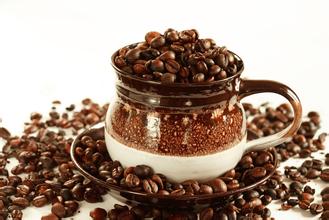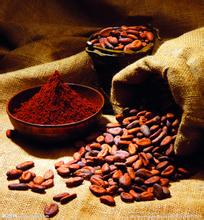There are several methods of Indonesian coffee source coffee.
Indonesian coffee has the taste of earth and traditional Chinese medicine, and its consistency is among the highest in all continents. But "Kopi Luwak" has a heavier earthy smell, and its consistency is closer to that of syrup. It has a very special flavor. After drinking, there will still be a touch of peppermint cool feeling in the mouth, which is the "exclusive taste" that ordinary coffee does not have. After drinking a cup, take a deep breath or take a sip of cold water, you can obviously feel cool from mouth to throat. It's like I just ate a mint lotion.
Experts say there is a gland near the sexual organs of the Indonesian "civet" that secretes milky oil, which has always been a precious raw material for the perfume industry. Even Shakespeare's play King Lear has this dialogue: "Please give me some civet oil to stimulate my inspiration." Others said, "this coffee is unique and is a specialty of Indonesia." Drink it, it's like finding a diamond in a stone. " Because the wild "civets" are obviously better at selecting good coffee fruits, so that this kind of coffee has outstanding characteristics.
Producing area editor
According to the boss of the coffee company, the Caffeine brand guarantees 100% pure wild kopi luwak.
Musk cat Sumatra bean
Musk cat Sumatra bean
It must be produced more than 1000 meters above sea level in the Sumatra plateau; not that many outside are produced in Vietnam or in other plains of Indonesia, where many Indonesian farmers produce coffee beans from captive civets. Nowadays, most of the Kopi Luwak coffee claimed on the market are non-Kopi Luwak fakes, and they can be divided into these forms: the first is to claim that it is collecting coffee beans on trees in coffee estates that have been infested by luwak, which are called Kopi Luwak coffee, not really coffee beans that can be digested by Luwak; moreover, coffee that is fried with spices; otherwise, it is simply known as Kopi Luwak coffee to fish for fame and raise the price. Moreover, there is no favorable certificate for the domestic coffee industry to show to consumers for verification, and products often have to be obtained through agents in the United States, Canada, the United Kingdom or Australia, rather than directly imported from Indonesian origin, resulting in uneven coffee quality.
Coffee brand editor
The coffee brand guarantees 100% pure wild kopi luwak, which is produced in Sumatra, Zawa, and Sulvis.
, which is part of the 13677 islands of Indonesia. Kopi Luwak brand is the only officially recognized brand by the Indonesian government, and it is deeply loved by coffee lovers for its unique fruity aroma and long aftertaste.
Kopi Luwak is definitely an international luxury because it is produced by civets (Luwak) rather than humans, especially the wild civets born and raised in Indonesia, which are vegetarian and very rare and precious. Indonesian coffee has a long historical background, and coffee footprints can be found in almost every corner of the country. Mountainous islands are very suitable for its growth, and wild coffee can often be found all over the woods. this provides convenience for the producer of Kopi Luwak, the civet.
Brewing mode editing
The aroma of Kopi Luwak is easier to lose than ordinary coffee. In order to maintain the flavor, coffee beans should be packaged independently.
Civet Java coffee beans
Civet Java coffee beans
And then inject nitrogen to prevent the oxidation of coffee beans, the production process is complicated and rigorous. If you want to enjoy the true taste of Kopi Luwak, do not add sugar or milk to your coffee. It is recommended to use an air stopper (Siphon siphon), add 160g / 180ml (ml) of pure water, pour 17g (grams) of coffee powder with about 2 flat spoons of coffee, and gently press down the raised coffee powder with flat bamboo slices after the water boils up. Remember! Do not stir, otherwise the coffee will become bitter, sour and astringent.
The water temperature is 96 ℃, the water pressure is 9-10atm, boil for about 1 minute 45 seconds ~ 2 minutes, quickly remove the fire source and wipe the glass bottle with a cold wet cloth to make it cool rapidly, the brewed coffee will quickly fall and show a large number of golden fine foam, so that the ultimate flavor can be achieved. In the general way of brewing, some people say that civet coffee can be brewed for 2 or 3 times, but the above brewing method is regarded as the essence after boiling for a long time, so rebrewing is not recommended.
Post-drink comment editor
It is said that experts who have tasted this kind of coffee have gone to two extremes in their comments on its taste.
Musk cat coffee
Civet Coffee (3)
One describes the coffee as "the best in the world". It tastes so unusual that it is difficult to describe in words: "it is a little fishy, slightly choking and visceral, and it stays in the mouth for a long time until the last drop." Another evaluation is quite the opposite: "it's hard to swallow, it's a complete gimmick, and it's not worth paying for stinky coffee."
Coffee experts say that most Luwak coffee comes from low-altitude robusta beans, suggesting that civets prefer robusta beans to Arabica beans at higher altitudes. As the activity range of Luwak belongs to low and middle altitude, most of the coffee varieties are robusta beans, while Arabica beans at high altitude are rarer. Indonesian coffee itself has the taste of earth and traditional Chinese medicine, and its consistency is among the highest in all continents, but Luwak coffee has a better taste and consistency, especially with a consistency almost close to syrup, and its flavor is very special (if it can be described by fragrance).
The coffee made from real civet coffee will give off the aroma of honey and chocolate without adding sugar.
And cream has a sweet, smooth and rich taste, and the texture of the original water has been fully covered by the round and rich texture of the coffee, so the tip of the tongue can hardly feel the quality of the water at the beginning of the mouth. Not bitter, not sour, not astringent, but a little more milk flavor, and after entering the throat without scraping the stomach will not cause stomach discomfort. Even if it is cold, the taste is still mellow. After tasting it, the cup still has a sweet smell of milk. It is a coffee with rich texture and depth, and it is absolutely unique. But if you don't like the taste of Indonesian coffee in the first place, then to be sure, you will hate Luwak coffee more; but if, on the contrary, you like the fishy smell of aged Indonesian beans or Indian-style beans, you may fall in love with Luwak coffee with similar flavor.
Once at a tasting, many celebrities savoured every fragrance of Luwak coffee without being told the truth, and tried to describe their sensory reactions with gorgeous words. However, when people know the origin of this drink, they feel stomach discomfort at the same time. Civet Coffee salespeople suggest that if you want to use this coffee to entertain a guest, either never tell him the truth, or tell him the origin of the coffee in advance and let him decide whether to drink it or not, lest he overreact.
Professional term editor
Flavor [Flavor]: the overall impression of aroma, acidity, and mellowness.
Acidity [Acidity]: the strong acidity of all coffee grown on the plateau. The sour here is different from bitterness and Sour, and has nothing to do with pH value. It refers to a fresh and lively quality that promotes coffee to exert its functions of invigorating the mind and clearing the taste. The acidity of coffee is not the acidity or sour smell of acidity or alkalinity, nor is it an uncomfortable acid that enters the stomach. When making coffee, the performance of acidity is very important. under good conditions and skills, a special taste with fresh acidity can be developed, which is a necessary condition for high-grade coffee. The sour taste of coffee describes a lively, bright flavor, which is somewhat similar to that used in wine tasting. If the coffee bean lacks acidity, it is equal to lose vitality, taste empty and boring, without layer depth. Acidity has many different characteristics, such as coffee beans from Yemen and Kenya, which have an impressive fruity aroma and a red wine-like texture.
Mellow [Body]: the taste of the tongue after drinking coffee. The change of mellowness can be divided into light to light, medium, high, fat, and even Indonesian coffee is as thick as syrup.
Odor [Aroma]: the smell and aroma emitted after the coffee has been prepared. The words used to describe smell include caramel, carbon roast, chocolate, fruit, grass, malt, and so on.
Bitterness [Bitter]: bitterness is a basic sense of taste, and the sensory area is distributed in the base of the tongue. The bitterness of deep baking is deliberately created, but the common cause of bitterness is too much coffee powder and too little water.
Light [Bland]: coffee grown in lowlands, usually quite light and tasteless. Coffee with insufficient coffee powder and too much water will have the same light effect.
Salty [Briny]: after brewing, if the coffee is overheated, it will produce a salty taste.
The aroma of soil [Earthy]: commonly used to describe spicy and earthy Indonesian coffee, not the smell of dirt on coffee beans. Uniqueness [Exotic]: describes coffee with its unique aroma and special flavor, such as flowers, fruits, and spices. Coffee from East Africa and Indonesia usually has this property.
Aromatic alcohol [Mellow]: used to describe coffee with good acidity balance.
Mild [Mild]: used to describe a coffee with a harmonious, delicate flavor, used to refer to all plateau coffee except Brazil.
Soft [Soft]: describes low acidity coffee such as Indonesian coffee, and also describes it as mellow or sweet.
Sour [Sour]: a sense of taste in which the sensory area is mainly located at the back of the tongue and is characteristic of light roasted coffee.
Spice [Spicy]: a flavor or smell reminiscent of a particular spice.
Strong [Strong]: technically, it describes the advantages and disadvantages of various tastes, or the relative ratio of coffee to water in a particular conditioned product. In terms of popular usage, it describes the strong flavor of deep-roasted coffee.
Sweet [Sweet]: in essence, it is like fruit, and it also has something to do with the taste of wine.
Wild [Wild]: describes coffee with extreme taste characteristics.
Wine [Winy]: fruit-like acidity and smooth mellow, created by the contrast of special flavor

Important Notice :
前街咖啡 FrontStreet Coffee has moved to new addredd:
FrontStreet Coffee Address: 315,Donghua East Road,GuangZhou
Tel:020 38364473
- Prev

Which brand of coffee machine is better for coffee beans? Which kind of coffee cup is better for coffee beans?
There are three main ways for people in China to drink coffee: one is to go to a better coffee house, such as Starbucks, the other is to go to the supermarket to buy finished coffee, go home to make coffee, and the third is to buy coffee beans and go home to grind coffee. Four: The following mainly talk about how to make good coffee: I think the taste of coffee is good or bad, one is the quality of coffee beans, it is recommended to use Starbucks origin coffee
- Next

Coffee tools Coffee rinses How to brew coffee
The temperature is between 80 and 90 degrees Celsius. 7. The time of brewing: all 50 to 60 seconds (do not exceed the time for too long). 8. Coffee beans should be fresh, not damp or placed for too long. 9. Coffee is best to be freshly ground. 10. Pay attention to the wind direction when brewing coffee. Do not blow the fire source directly. 11. Pay attention to the size of the fire source: strong fire, large fire, medium fire, small fire, slight fire. 12. Boiled coffee powder is first beaten loose and then poured out
Related
- Does Rose Summer choose Blue, Green or Red? Detailed explanation of Rose Summer Coffee plots and Classification in Panamanian Jade Manor
- What is the difference between the origin, producing area, processing plant, cooperative and manor of coffee beans?
- How fine does the espresso powder fit? how to grind the espresso?
- Sca coffee roasting degree color card coffee roasting degree 8 roasting color values what do you mean?
- The practice of lattes: how to make lattes at home
- Introduction to Indonesian Fine Coffee beans-- Java Coffee producing area of Indonesian Arabica Coffee
- How much will the flavor of light and medium roasted rose summer be expressed? What baking level is rose summer suitable for?
- Introduction to the characteristics of washing, sun-drying or wet-planing coffee commonly used in Mantenin, Indonesia
- Price characteristics of Arabica Coffee Bean Starbucks introduction to Manning Coffee Bean Taste producing area Variety Manor
- What is the authentic Yega flavor? What are the flavor characteristics of the really excellent Yejasuffi coffee beans?

